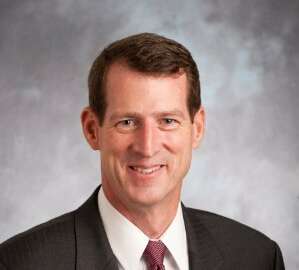
Should TSP millionaires be congratulated or horse-whipped?
Senior Correspondent Mike Causey wonders whether the media should soft-pedal news about the financial success of rank-and-file federal civil servants as investors.
Does news about the successful long-haul investing habits and results by federal and postal workers help or hurt them with Congress and the public? Should there be a voluntary news blackout on numbers from the Thrift Savings Plan, Uncle Sam’s highly successful, massive in-house 401(k) plan? Ask yourself:
1) What would you think of an outfit where at least half of the people elected to fight for, and defend, ordinary folks were themselves millionaires? An institution like Congress, for example. Does their success trouble or encourage you? Most are people who raise and spend more money in a couple of months getting reelected than they make in two, four or even six years in the House or Senate.
2) What about a group, like the president’s Cabinet and top political appointees, who are mostly either millionaires or billionaires? Does wealth disqualify them? Does it make them tools of Wall Street (or some other rich guys special interest group)? Or does it mean they are very smart people who maybe took some big chances that paid off big time? Or maybe a little of both?
One thing that lots of politicians (elected or appointed) have in common is they just don’t like bureaucrats. Career civil servants who, they see, as calcified time-servers who get pay and pensions far beyond those available to mere mortals who don’t work for the federal government. When POTUS promises to drain the swamp, he isn’t referring only to Washington, where only 14 of every 100 federal workers lives, plays and votes. Big cuts in non-defense federal employment could hurt communities from Raleigh-Durham and Atlanta to parts of Idaho, Montana, Indiana, Oklahoma and Colorado that aren’t seen as major federal centers, but in fact are.
I ask because:
Normally I do two or three columns a year about participating in the federal TSP. Most workers (and many retirees) are in it. Most have invested steadily for a long time. Many of the 4.9 million federal and military account holders have had remarkable success. Especially if they stayed the course and didn’t flinch or retreat during the Great Recession. Of that 4.9 million, 9,559 have accounts worth $1 million or more. Many of the first TSP millionaires were political appointees who transferred outside retirement account balances into the low-fee TSP. But a growing number made their money the old-fashioned way. By regular, steady investing (over an average of 29.2 years) for the long haul.
To me that says that far from being clock-watchers, that the majority of feds are contributing to their own retirement by building a nest-egg independent of their federal annuity and Social Security. That they are smart enough to invest at least enough to get the government’s 5 percent matching contribution. And to ensure that in retirement they will be independent (and still buying stuff and paying taxes) unlike those who can’t, don’t or won’t save and invest for retirement.
But at least one reader says that while he normally enjoys the column, he cringes when the subject is the TSP. Here’s what he said:
“I always enjoy your columns with one exception.
Please stop writing about millionaire fed employees!
The current administration and many Republican congressmen/women already want to balance the budget on the backs of federal employees.
Unfortunately, many in congress see us as overpaid, underworked drains on this country’s budget.
I am afraid that your too-frequent columns regarding thrift fund “millionaires” is not helping the perception of federal pay and benefits.
I am a 30-plus year federal employee and appreciate the opportunity we all have but so does Congress and they are trying to take that and other benefits away. Please don’t give them any more ammunition.” – Navy Civilian
Here are the two recent columns he’s talking about. One asks who the $5 million fed (probably a member of Congress) is:
The other is how much feds have in their accounts and how long they’ve been investing
So is he right? Should we ration news about the TSP? Or develop some kind of code that would make sense to you, but be gibberish to anti-fed politicians?
Or is whatever we (as in you) do wrong? Would the pols who you wish would go away like you any better if they thought you were passively waiting around to collect a pension? Probably not. But what do you think?
Nearly Useless Factoid
It snows every year in Hawaii. The summits of three volcanoes — Mauna Loa, Mauna Kea and Haleakala — are high enough in elevation that they each receive snow a few times a year.
Source: The Weather Channel
Copyright © 2025 Federal News Network. All rights reserved. This website is not intended for users located within the European Economic Area.
Mike Causey is senior correspondent for Federal News Network and writes his daily Federal Report column on federal employees’ pay, benefits and retirement.
Follow @mcauseyWFED
Related Stories





